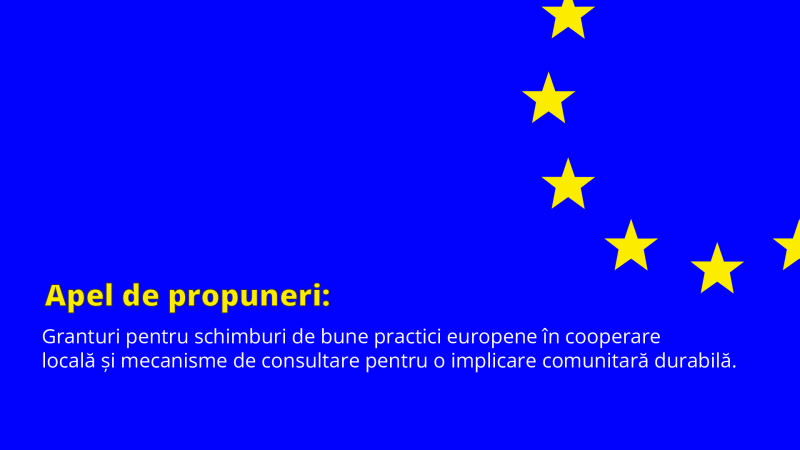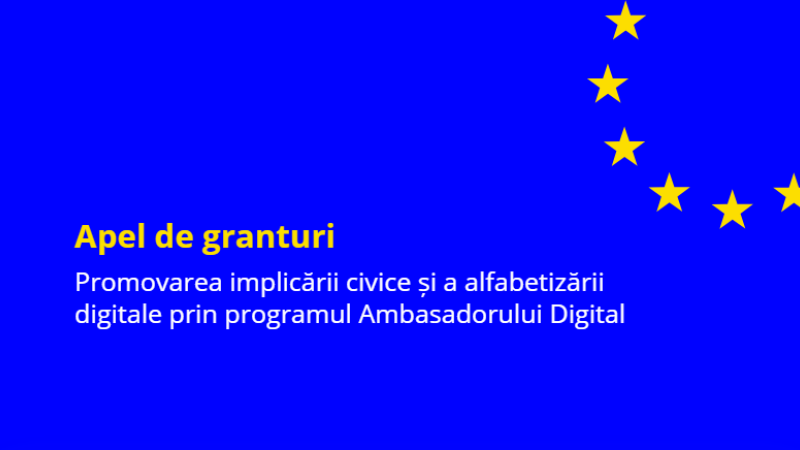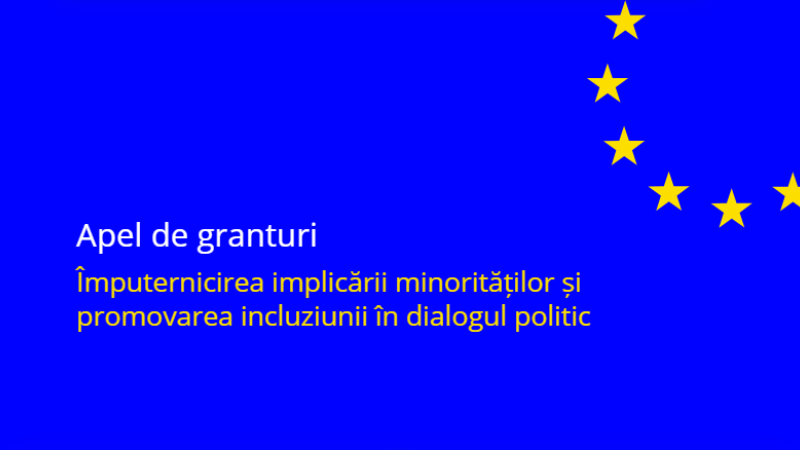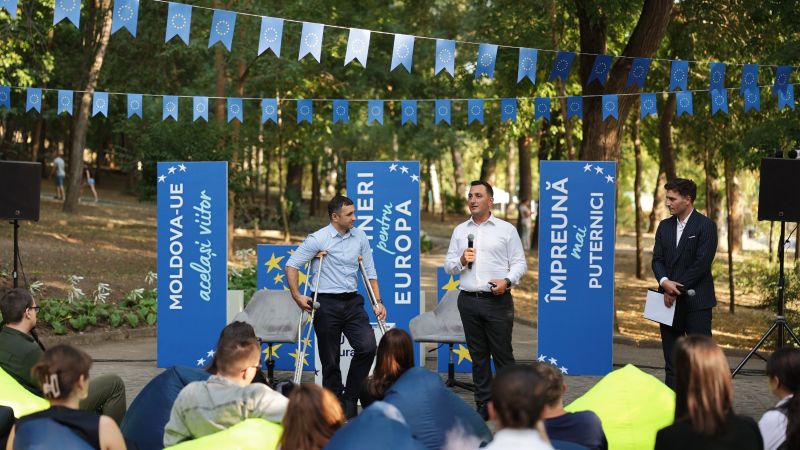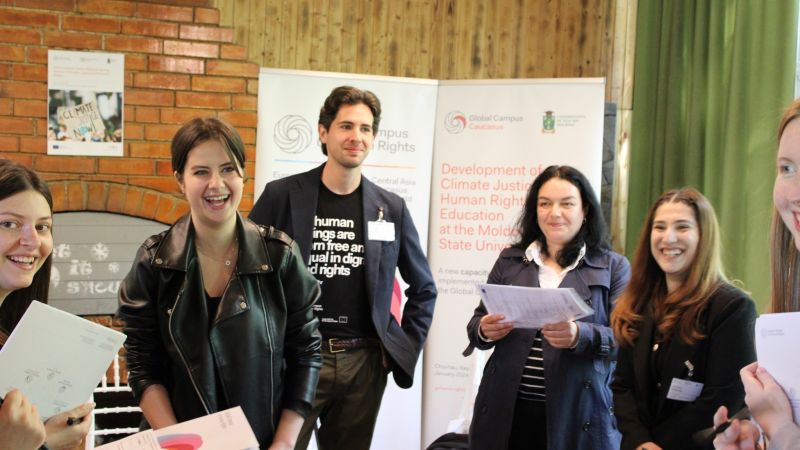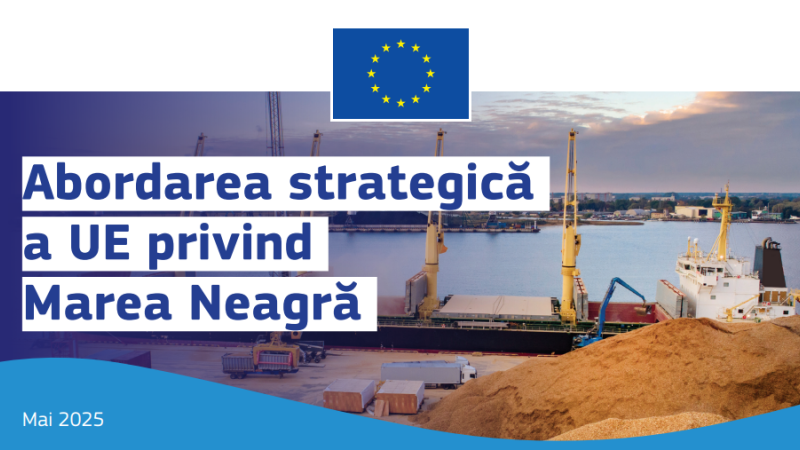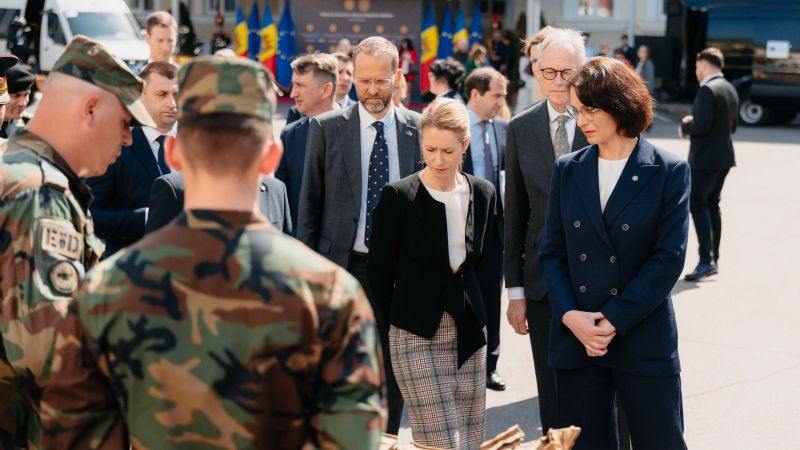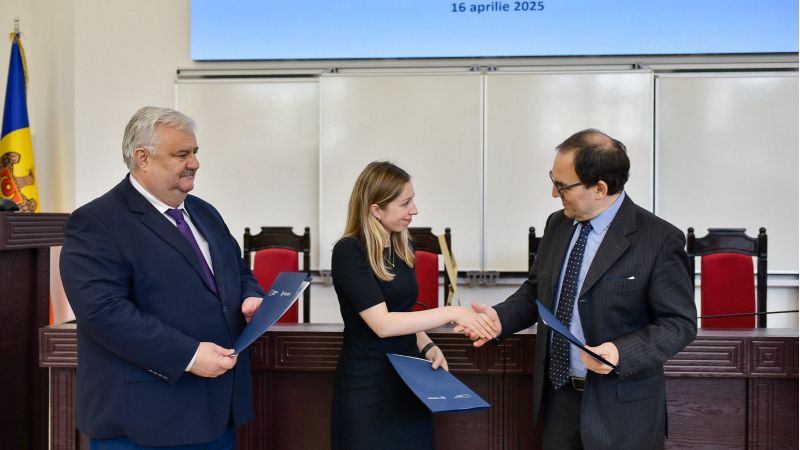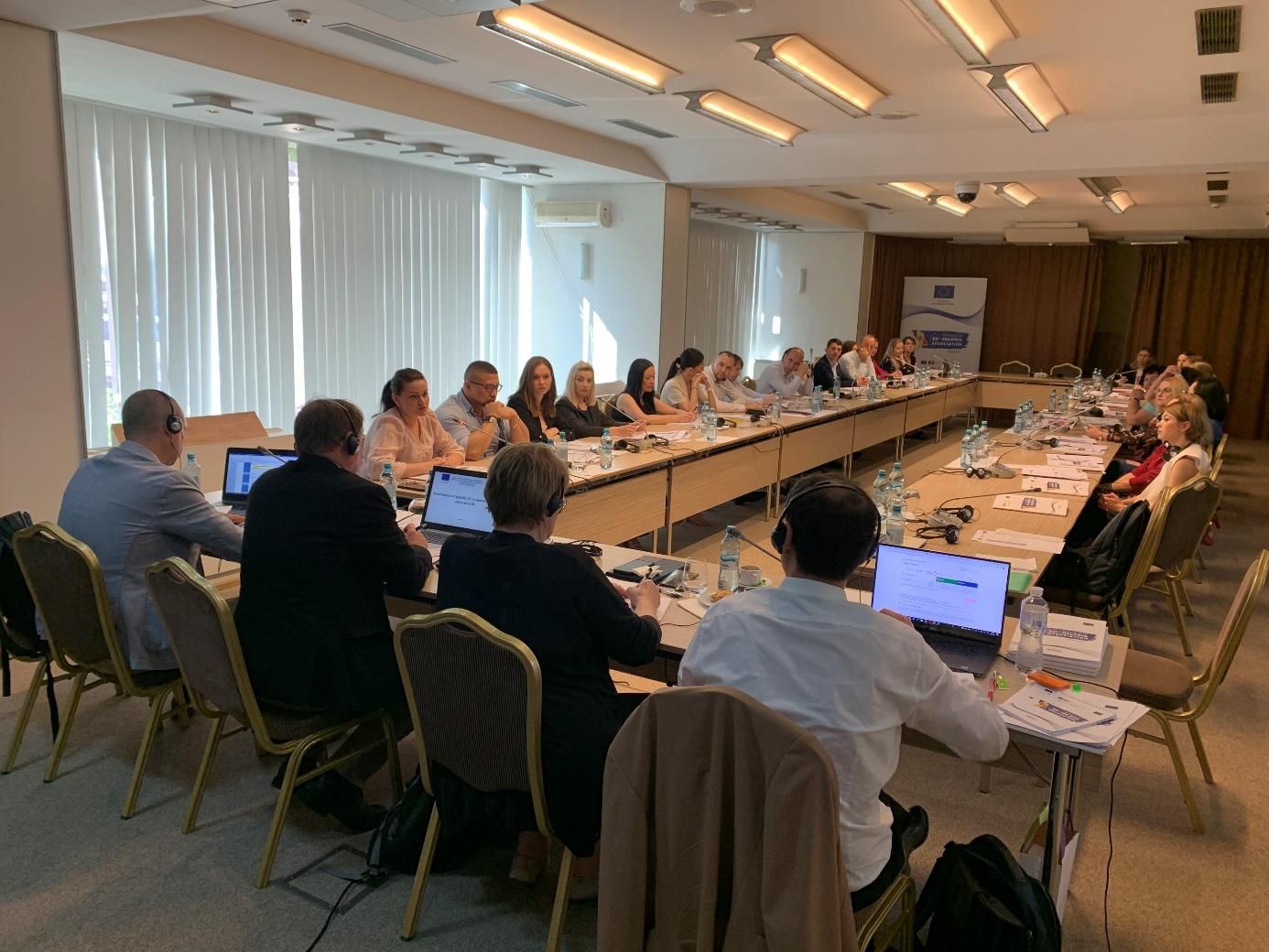
Atelier de lucru despre aproximarea la legislația UE și despre viitoarele negocieri de aderare la UE
La 16 iunie 2022, proiectul finanțat de UE „Sprijin pentru dialogul politic structurat, coordonarea implementării Acordului de asociere (AA) și îmbunătățirea procesului de aproximare legală în Republica Moldova” a organizat la Chișinău o masă rotundă privind procesul de aproximare la UE și viitorul proces de aderare a Republicii Moldova la UE.
La masa rotundă au participat în total 45 de funcționari publici, reprezentanți ai Centrului de Aproximare Juridică, ai altor direcții ale Cancelariei de Stat, ai Ministerului Afacerilor Externe și Integrării Europene și ai serviciului public al Parlamentului.
Armonizarea legislației naționale cu acquis-ul UE este una dintre elementele de bază ale negocierilor de aderare la UE. După depunerea cererii de aderare a Republicii Moldova la UE și primirea ulterioară a statutului de stat candidat la 23 iunie 2022, o astfel de armonizare a legislației Republicii Moldova a devenit acum o prioritate absolută.
Consiliul European de la Copenhaga din 1993 a definit cel de-al treilea criteriu de aderare la UE ca fiind „capacitatea de a-și asuma obligațiile care decurg din calitatea de membru, inclusiv aderarea la obiectivele unificării politice, precum și la Uniunea Economică și Monetară (UEM)”. Un stat care dorește să adere la UE trebuie să-și armonizeze legislația națională cu acquis-ul comunitar în timpul negocierilor de aderare la UE. Acquis-ul UE, prin natura sa, nu face obiectul negocierilor de aderare la UE, deoarece statul trebuie să pună în aplicare întregul acquis comunitar. Țara negociază, în schimb, „cum” și „când” va pune în aplicare întregul acquis comunitar în sistemul său juridic.
Această abordare a fost aplicată începând cu anul 1973 și cu primul val de extindere a Comunității Economice Europene (care a devenit ulterior Uniunea Europeană). Începând cu data aderării, acquis-ul UE va fi aplicat pe teritoriul unui nou stat membru al UE în același mod în care este aplicat pe teritoriul tuturor celorlalte state membre ale UE. Singurele derogări de la această regulă sunt eventualele dispoziții tranzitorii care pot fi convenite în mod excepțional în timpul negocierilor de aderare. Aceste excepții sunt negociate ținând cont de situația specifică a unei țări candidate și îi permit acesteia să nu pună în aplicare integral anumite acte ale UE (definite în mod specific) pe teritoriul său pentru o perioadă limitată după aderare sau să le pună în aplicare într-un mod specific. Aceste excepții sunt foarte limitate în timp și în domeniul de aplicare.
Principalele subiecte discutate în cadrul mesei rotunde au fost: i) Experiența Republicii Moldova cu Chestionarul UE și etapele următoare; ii) Etapele și documentele necesare în negocierile de aderare la UE și în procesul de aproximare; iii) Rolul „Programului național de adoptare a acquis-ului” (PNAA) ca principal document de planificare pentru procesul de negociere a aderării la UE utilizat de țările din Europa Centrală și de Est, pe lângă cele din Balcanii de Vest, care prezintă prioritățile procesului/negocierilor de aderare la UE și angajamentele care decurg din Acordul de asociere și iv) Necesitatea traducerii în limba engleză a documentelor și legislației Republicii Moldova pentru procesul de negociere a aderării și organizarea serviciului de traducere.
Dl Primož Vehar, liderul echipei de proiect, a moderat discuția și a împărtășit experiența Sloveniei în timpul procesului de aderare la UE, unde dumnealui a fost responsabil de procesul de armonizare juridică și de implementarea AA în cadrul guvernului, iar ulterior a fost și secretar al Comisiei parlamentare pentru afaceri europene. Totodată, dl Vladimir Medjak, fost director adjunct al Serviciului guvernamental pentru Integrare Europeană din Serbia (responsabil pentru armonizarea legislației și implementarea AA) și fost jurist-șef al echipei de negociere a aderării Serbiei, a împărtășit experiența Serbiei, iar dna Inese Birzniece, fost deputat în Parlamentul leton și fost atașat pe probleme de justiție al Letoniei pe lângă UE, a împărtășit experiența Letoniei.
Experții din Letonia și Slovenia, precum și din Serbia, stat candidat la aderare, au explicat diversele etape ale procesului de aderare la UE, care sunt documentele care trebuie elaborate în cadrul acestui proces, dar și cum și în ce ordine trebuie întocmite aceste documente. Aceștia au pus accentul, în special, pe importanța crescândă a fazei de examinare a negocierilor, după cum o demonstrează actuala rundă de negocieri de aderare pentru Muntenegru și Serbia, precum și pe importanța procesului de aproximare în cadrul acestei faze. Experții au acordat o atenție deosebită criteriilor de referință ca instrument al UE pentru eficientizarea procesului de reformă în țara candidată, legăturilor dintre aderare și Acordul de asociere (AA) și modului în care obligațiile neîndeplinite din AA devin criterii de referință în cadrul negocierilor de aderare.
Un alt subiect de interes al mesei rotunde a inclus explicațiile privind noua metodologie de negociere a aderării introdusă în 2020 și efectele acesteia asupra procesului de reformă din țara candidată: Capitolele acquis-ului UE au fost reorganizate în șase grupuri și se pune un accent sporit pe domeniul statului de drept încă de la început. Negocierile se desfășoară în limba engleză, fapt care evidențiază necesitatea stabilirii unui mecanism de traducere/terminologie adecvat, care va asigura traduceri de calitate a documentelor Republicii Moldova (inclusiv a legislației) pe parcursul negocierilor de aderare.
Principalele concluzii ale experților pe parcursul acestei mese rotunde au fost că întregul proces de negociere a aderării nu poate fi derulat cu succes fără 1) un mecanism de coordonare organizat în jurul celor 35 de capitole de negociere ale UE care acoperă întregul acquis comunitar și 2) un document unic de planificare, Programul național de adoptare a acquis-ului comunitar (PNAA), care planifică întregul proces. PNAA acoperă întregul acquis al UE împărțit în 35 de capitole de negociere și oferă baza pentru pregătirea procesului de examinare, precum și pentru pozițiile de negociere ale Moldovei în fiecare dintre aceste 35 de capitole și pentru monitorizarea punerii în aplicare de către Moldova a obligațiilor asumate în timpul procesului de negociere.
Proiectul finanțat de UE „Sprijin pentru dialogul politic structurat, coordonarea implementării Acordului de asociere și îmbunătățirea procesului de aproximare legală în Republica Moldova” are drept scop creșterea capacităților Guvernului Republicii Moldova și a altor instituții naționale cheie în implementarea Acordului de Asociere UE-Republica Moldova.
